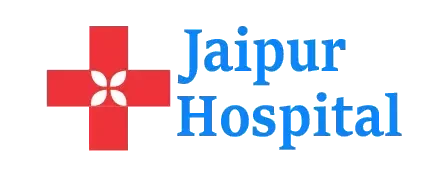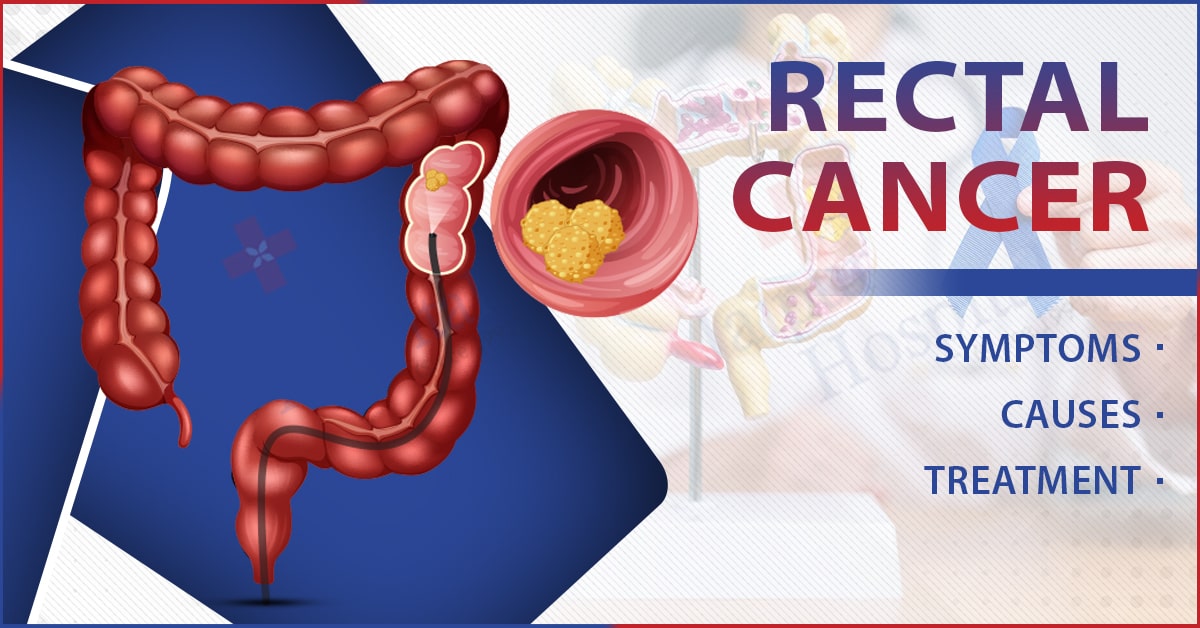Introduction
Rectal cancer is a disease in which abnormal cells in the rectum grow and become tumors. It is increasingly being expressed all over the world as a threat to health. This type of cancer is pretty much like colon cancer because it belongs to one class, which is colorectal cancer.
Understanding the rectal cancer causes, its symptoms, and its available treatments will be discussed below. In addition, we will look at related topics such as risk factors, stages of rectal cancer, diagnostic methods, lifestyle changes, and preventive measures to understand this disease totally.
Read also: Throat Infection: What Its, Symptoms, Causes, and Risk Factors
What Is Rectal Cancer?
Rectal cancer is a type of malignant disease whereby abnormal cells within the rectum multiply in a manner that cannot be controlled, as it represents the last portion of the large intestine, located right before the anus. Biologically, rectal cancer causes starts at the mucous membrane of the rectum. Most commonly, it originates from glandular epithelial cells whose genetic mutation makes them break normal cell cycles so that cells no longer undergo apoptosis, multiply extensively, and infiltrate surrounding tissues.
Causes of Rectal Cancer
The cause of rectal cancer may not be straightforward, but more often than not, it tends to be attributed to a collection of genetic and environmental factors influenced by lifestyle elements. Essentially, rectal cancer causes begins with a mutation in the rectum cells. The mutations halt the normal growth cycle of a cell, enabling uncontrolled and chaotic growth culminating in tumors.
In general, a few of the major risk and causative agents of rectal cancer include the following:
- Genetic Predisposition: In patients with family histories of colorectal or rectal cancer, this risk factor increases, particularly for inherited disorders like Lynch syndrome or familial adenomatous polyposis (FAP).
- Dietary Habits: Diets with high contents of red and processed meats as well as low fiber intakes tend to cause higher risks for rectal cancer.
- Lifestyle Factors: Tobacco consumption, alcohol consumption, and obesity are reported with a higher prevalence of rectal cancer.
- Chronic Inflammation: Diseases like IBD, including Crohn’s disease or ulcerative colitis, can increase the risk of malignant transformation in the rectum.
- Age: Rectal cancer causes tends to be seen in individuals aged 50 and above. It is also becoming increasingly prevalent among younger adults.
- Exposure to Radiation: Patients who have received radiation to the pelvic region previously are at increased risk.
Symptoms of Rectal Cancer
Depending on the advanced stage of the disease, rectal cancer causes may numerous symptoms; still, a couple of symptoms would include:
- Changes in Bowel Habits: Persistent diarrhea, constipation, or feeling that the bowel does not empty.
- Blood in stool: There may be fresh red or black blood in the stool, which can be mistaken for hemorrhoids.
- Rectal Bleeding: Frequent or unexplained rectal bleeding that doesn’t subside.
- Abdominal Pain or Discomfort: Persistent cramps or pain in the lower abdomen with bloating or without it.
- Unexplained Weight Loss: Rapid weight loss in the absence of any dietary alteration or exercise.
- Fatigue or Weakness: Severe fatigue that results from anemia associated with blood loss.
- Narrow or Ribbon-like Stools: The stool appears narrower or more ribbon-like because of the obstruction inside the rectum.
Risk Factors for Rectal Cancer
Rectal cancer, like other cancers, has multiple predisposing factors of both genetic and lifestyle/behavioral origins and environmental. Such factors must be known to prevent the disease as well as for early detection. Here are the main risk factors of rectal cancer causes:
- Age: The risk factors for rectal cancer have increased constantly in people of more than 50 years; however, age is becoming younger.
- Family history and genetics: There is an increased risk if there is a family history of colorectal or rectal cancer, genetic conditions like Lynch syndrome, or familial adenomatous polyposis (FAP).
- Diet: A diet that is rich in red meat and processed meat, and low in fiber has been associated with increased risk.
- Lifestyle: Inactive lifestyle, obesity, smoking, and excessive alcohol use have been related to increased risk of the disease.
- Inflammatory bowel diseases, where there is some chronic inflammation inside the digestive system, increase its risk primarily due to diseases such as Crohn’s or ulcerative colitis.
- History of Cancer: People who have had colon, rectal, or other gastrointestinal cancers are at higher risk of developing rectal cancer.
- Type 2 Diabetes: The risk of rectal cancer causes may also be increased with insulin resistance and its accompanying inflammatory environment in type 2 diabetes.
- Radiation Exposure: Previous radiation therapy to the pelvic region may predispose a patient to rectal cancer in the long term.
Diagnosing Rectal Cancer
Diagnosis of rectal cancer requires both the medical history of the patient, a proper physical examination, and some diagnostic tests that ensure cancerous growth is indeed there in the rectum. A diagnosis is typically made with the patient’s detailed history and the history taken for a general physical check-up along with DRE in which the doctor examines the rectum by checking with his bare fingers.
If abnormalities are suspected, further diagnostic procedures are employed, such as:
- Colonoscopy: It is a major diagnostic tool. A flexible tube with a camera is used to examine the rectum and colon. It can directly visualize suspicious areas and collect biopsies.
- Biopsy: Tissue samples taken during a colonoscopy are analyzed in the laboratory to find out if they are cancerous.
- Imaging Tests: Techniques like CT scans, MRI, or endorectal ultrasound help determine the extent of the tumor and spread to nearby tissues or organs.
- Blood Tests: Tests like CEA (carcinoembryonic antigen) levels may be done to detect tumor markers associated with rectal cancer.
Treatment Options for Rectal Cancer
Treatment for rectal cancer varies depending on the stage, location, patient’s general health, and personal preferences. The following are the main treatment options:
- Surgery: Surgery is usually the mainstay in the treatment of rectal cancer causes. Based on the stage and location of the tumor, surgery can be a low anterior resection (LAR) or an abdominoperineal resection (APR) to remove the cancerous tissue. Advanced techniques include minimally invasive laparoscopic or robotic surgery, with faster recovery.
- Radiation Therapy: It uses high-energy beams that destroy cancer cells and is mostly used in addition to surgery, both in an early or locally advanced stage, aiming at shrinking the tumor as well as preventing its relapse.
- Chemotherapy: Chemotherapy uses chemical agents to eradicate or slow up the growth of cancerous cells. It could be administered preceding surgery (neoadjuvant therapy) before reducing the size of tumors or immediately after surgery, adjuvant therapy, when remaining cancer cells have to be eliminated.
- Targeted Therapy: Targeted therapies target specific genetic mutations or proteins that drive cancer growth. These are less likely to damage normal cells and are used for advanced or metastatic rectal cancer causes.
- Immunotherapy: In some instances, immunotherapy enables the immune system to identify and destroy cancer cells. It is most effective for rectal cancers with specific genetic mutations, such as microsatellite instability-high (MSI-H) or mismatch repair deficiency (dMMR) tumors.
- Palliative Care: For advanced cases, palliative treatments are for symptom relief with the improvement of quality of life. This is through pain relief, dietary supplements, and some lifestyle changes.
Prevention of Rectal Cancer and Lifestyle Changes
Prevention of rectal cancer causes can be done by early screening, maintaining a healthy lifestyle, and managing risk factors. Though some cannot be prevented, the following lifestyle changes will help significantly in preventing rectal cancer:
- Regular Screening
- Routine colonoscopies can detect early precancerous polyps and thus remove them before they develop
- into cancer.
- Start age screenings at 45 years or even earlier if having a family history or genetic tendency.
- Healthy Nutrition
- Eat enough dietary fiber foods like fruits, vegetables, and whole grains to provide for healthy bowel function and protect against cancer.
- Limit red meat and processed meats which are implicated as risk factors for rectal cancers causes.
- Intake of diets with antioxidants and omega-3 fatty acids will have to include intake of fish, nuts, and seeds.
- Sustained Physiological Activity
- Engage in at least 150 minutes of moderate-intensity exercise per week. Activities such as walking, jogging, or cycling can help maintain a healthy weight and improve overall metabolic health.
- Maintain a Healthy Weight
- Obesity is a known risk factor for rectal cancer causes. A balanced diet and regular exercise should be maintained to achieve and maintain a healthy weight.
- Avoid Smoking and Limit Alcohol
- Smoking damages DNA, and smoking is one of the factors that increase the risk of several cancers, including rectal cancer.
- Reduce alcohol intake. Drinking heavily is known to increase the risk of developing colorectal cancer.
- Control Chronic Conditions
- Care for chronic diseases such as diabetes or inflammatory bowel diseases like Crohn’s disease or ulcerative colitis that can increase the risk of developing rectal cancer.
- Hydrate
- Drink plenty of water to help keep bowel movements smooth and prevent constipation.
Conclusion
Rectal cancer Causes is a serious condition that can be treated and prevented through early detection, awareness of risk factors, and maintaining a healthy lifestyle. This type of cancer falls within the fields of oncology and gastroenterology, focusing on the development of cancerous tissues in the digestive system. Early diagnosis and treatment can improve patient outcomes and quality of life. Jaipur Hospital is very well known for cancer treatment and is a highly regarded option for the care of rectal cancer. With excellent facilities, modern diagnostic tools, and dedicated oncologists and gastroenterologists, the hospital provides extensive, personalized support that guides the patient through each phase of the treatment with great accuracy and sensitivity.


